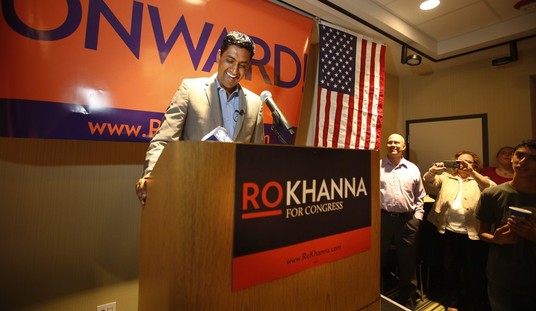It’s a good line, although it’s not the first time Kellyanne Conway has used it — it’s not even the first time she’s used it on George Stephanopoulos. The two went in circles this morning over the report that Donald Trump Jr met during the presidential campaign with a Russian lawyer who promised some juicy dirt on Hillary Clinton. The meeting produced nothing as the attorney apparently wanted to pitch policy about Russian adoptions, but Trump Jr never disclosed it until it emerged this weekend in the press. Conway had earlier denied any such meetings took place, a point which Stephanopoulos presses on Good Morning America, declaring evidence of “collusion.”
Conway’s response is to ask: Collusion over what?
ABC Breaking News | Latest News Videos
Kellyanne Conway, counselor to President Trump, said today on “Good Morning America” that “no information was received that was meaningful or helpful” during Donald Trump Jr.’s meeting with a Russian lawyer in the days after his father clinched the Republican presidential nomination.
Conway also denied allegations that the Trump campaign colluded with the Russian government in an effort to win the presidency, saying “there’s no evidence of collusion” between the two parties. …
Conway today backed Trump Jr.’s account of events and said that allegations linking the Trump campaign to collusion with the Russian government were examples of “wishful thinking” on the part of the president’s opponents.
“Everyone is trying to convert wishful thinking into hard evidence,” Conway said.
At one point, Conway makes her frustration explicit. “If we’re going to keep using the word collusion, where is the evidence of collusion?” That’s actually a pretty good question. The Washington Post report on the meeting never gets around to suggesting any kind of quid pro quo resulted from the meeting, and in fact appears to have been a dud all the way around.
Natalia Veselnitskaya got the meeting by alleging that she had some dirt on Russian connections to the DNC, which certainly would have caught the attention of Hillary Clinton’s political opponent. Rather than delivering on that promise, Veselnitskaya apparently lobbied instead for some easing of the Magnitsky Act that imposed sanctions on Russia for human-rights abuses. Trump Jr ended the meeting, and the campaign never did allege any such funding. Nor has the administration taken any steps to curtail sanctions on Russia. Collusion requires at least some exchange of goods or illicit services. Quite literally, there’s nothing here, at least in terms of collusion.
That doesn’t mean that the Post story, which only mentions collusion in one instance in reference to denials by “Trump officials,” is entirely nothing. While campaigns at this level in both parties aggressively seek out dirt on their opponents, this effort from Trump Jr, Jared Kushner, and Paul Manafort was clumsy and amateurish. People at that level shouldn’t take meetings with anyone without a good idea of who they are and who they may represent. Veselnitskaya has public connections to Kremlin-friendly clients, according to the Post, which should have been a warning signal to avoid her. It’s not like Veselnitskaya was keeping a low profile:
Veselnitskaya’s client roll includes individuals and companies close to the Kremlin. She has for the past several years been a leading advocate around the world to fight Magnitsky Acts, sanctions intended to rebuke Russia for human rights abuses. The acts are named for Sergei Magnitsky, a Russian lawyer who died under mysterious circumstances in a Moscow prison in 2009 after exposing a corruption scandal. …
The meeting occurred during a period of intense focus on the Magnitsky sanctions. Four days after the Trump Tower session June 9, Veselnitskaya was in Washington attending a House Foreign Relations Committee hearing that discussed sanctions and other aspects of U.S.-Russia relations.
That evening, a film critical of the Magnitsky sanctions — and the story behind them — showed at the Newseum. On June 15, Veselnitskaya was featured on the Sputnik News website criticizing the sanctions and its leading advocate, William Browder, a financier who left Russia a decade ago amid concerns about corruption, including that exposed by Magnitsky, the lawyer and auditor he had hired.
Once the meeting took place, it should have been disclosed. Conway repeatedly notes that the three have now amended their disclosures to include the meeting, but it still leaves the impression that they thought they had something to hide. Had this taken place in the Obama administration, that’s certainly what many on the Right would have concluded, although it seems doubtful that George Stephanopoulos would have grilled David Axelrod on it to the same extent. Now that the denials from earlier this year have been reversed, Stephanopoulos understandably wants to sink his teeth into them — but that’s not “collusion,” or even evidence of it.







Join the conversation as a VIP Member